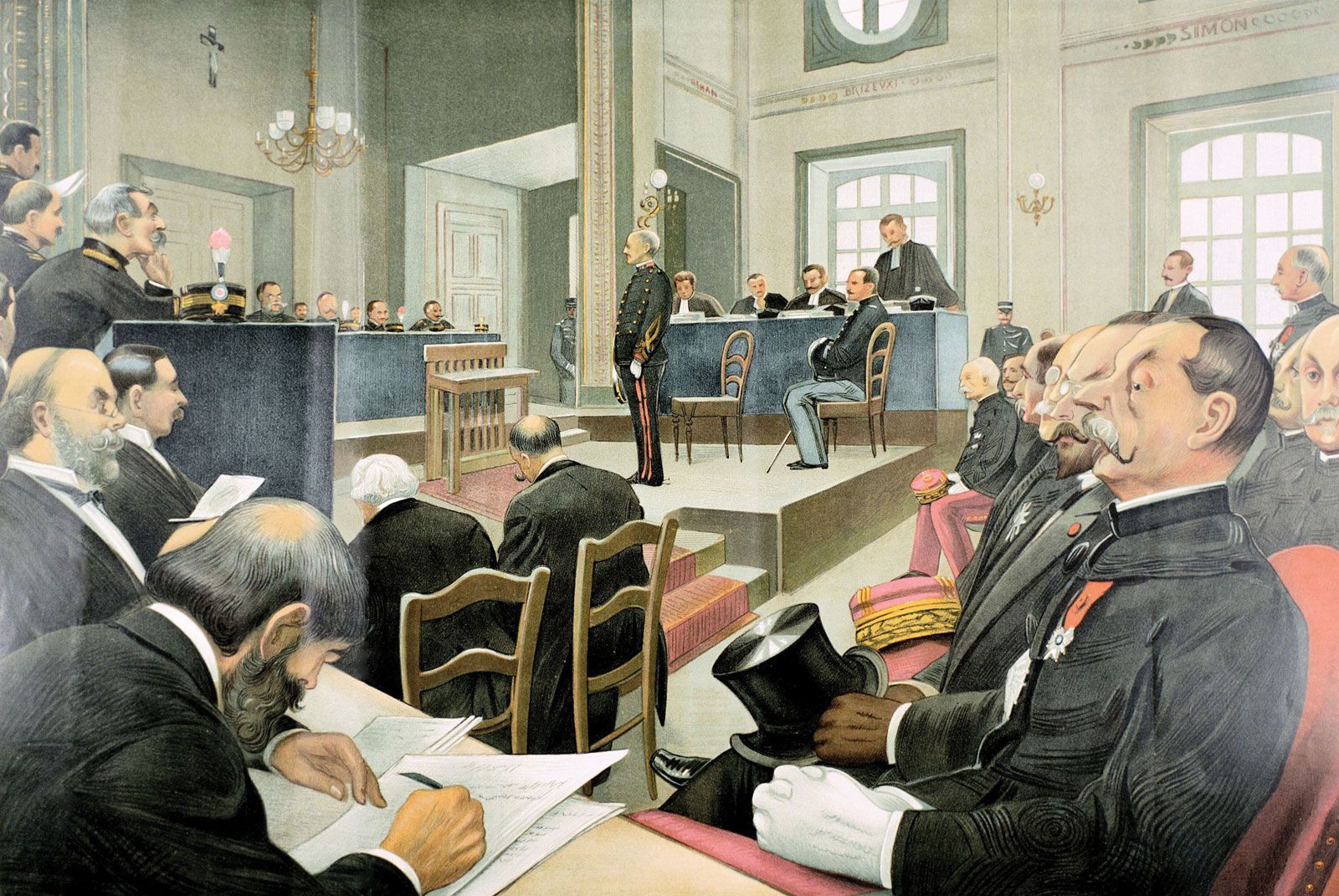France Reopens The Dreyfus Affair: Lawmakers Advocate For Posthumous Honor

Table of Contents
The Dreyfus Affair: A Brief Recap
The Dreyfus Affair, which unfolded between 1894 and 1906, remains one of the most infamous cases of judicial error and antisemitic persecution in modern history. At its center was Captain Alfred Dreyfus, a Jewish officer in the French Army, falsely accused of treason. The accusations, fueled by antisemitic prejudice within the military establishment, led to a highly publicized trial and Dreyfus's unjust conviction and subsequent exile to Devil's Island.
- Dreyfus's Jewish background: His Jewish heritage played a significant, and tragically decisive, role in the affair, fueling the antisemitic sentiments that drove the false accusations.
- Flawed evidence: The evidence presented against Dreyfus was demonstrably flawed, yet it was sufficient to secure his conviction in a climate of intense anti-Jewish sentiment.
- The role of the press: The French press, deeply divided, played a crucial role in shaping public opinion, with some outlets fanning the flames of antisemitism while others championed Dreyfus's cause.
- Key figures in Dreyfus's exoneration: The fight for Dreyfus's exoneration involved notable figures like Émile Zola, whose open letter "J'accuse…" fiercely denounced the injustice, and Mathieu Dreyfus, Alfred's brother, who tirelessly worked to uncover the truth.
The affair exposed deep-seated antisemitism within the French military and society, sparking a national crisis that challenged the foundations of French justice and national identity.
The Modern Push for Posthumous Honor
Currently, there's a growing movement within the French Parliament to grant Captain Alfred Dreyfus a posthumous honor. Lawmakers from across the political spectrum are advocating for this recognition, motivated by a desire to formally acknowledge the historical injustice and combat the lingering effects of antisemitism.
- Legislative proposals: While specific details may vary, several bills and proposals have been introduced aiming to officially rehabilitate Dreyfus and offer a formal apology for the state’s role in the injustice.
- Lawmaker statements: Supporters argue that a posthumous honor is essential to symbolically repair the damage done to Dreyfus and his family, and to send a clear message that such antisemitic persecution will not be tolerated.
- Forms of the honor: The proposed honors range from the erection of a national monument dedicated to Dreyfus to the formal inclusion of a statement of apology in official French government documents and school curricula regarding the Dreyfus Affair.
- Political climate: The renewed interest in honoring Dreyfus reflects a growing awareness of the continuing threat of antisemitism and a commitment to confronting France's complicated history.
Arguments For Posthumous Recognition
The arguments in favor of posthumously honoring Dreyfus are multifaceted and compelling:
- Rectifying historical injustice: The honor would serve as a powerful symbolic act of rectifying the grave injustice suffered by Dreyfus, acknowledging the state's failure to protect him from antisemitic persecution.
- Combating antisemitism: The initiative is seen as a crucial step in confronting the enduring legacy of antisemitism in France and promoting tolerance. It's a public declaration of France’s commitment to combating all forms of prejudice.
- Educational value: A formal acknowledgment of the injustice would provide invaluable educational opportunities, encouraging a deeper understanding of the Dreyfus Affair and its significance in the broader context of human rights and social justice. The affair’s inclusion in modern education would teach future generations about the dangers of unchecked prejudice.
Potential Counterarguments and Challenges
Despite the widespread support, potential counterarguments and challenges exist:
- Revisiting a sensitive historical event: Some might express concerns about reopening wounds from a sensitive period in French history, arguing that dwelling on the past could be divisive.
- Opposition groups: While limited, some groups might oppose the honor, perhaps rooted in a reluctance to fully acknowledge past failings or differing interpretations of historical events.
- Legislative hurdles: Passing legislation related to historical events can be challenging, involving intricate political processes and potential disagreements among lawmakers.
The Lasting Legacy of the Dreyfus Affair
The Dreyfus Affair continues to hold immense significance in modern France and beyond:
- Cautionary tale: It serves as a potent cautionary tale against injustice, prejudice, and the dangers of unchecked state power. It highlights the importance of due process and the vulnerability of minorities in the face of societal biases.
- Impact on French society and politics: The affair fundamentally altered French society and politics, leading to crucial reforms in the judicial system and a heightened awareness of the dangers of antisemitism.
- Modern relevance: Its lessons remain strikingly relevant today, underscoring the ongoing fight for human rights, social justice, and the importance of confronting historical injustices to build a more equitable future. The contemporary rise in antisemitism globally gives renewed weight to its lessons.
Conclusion:
The renewed push to posthumously honor Captain Alfred Dreyfus reflects a growing recognition of the enduring significance of the Dreyfus Affair. This effort is not merely a historical reassessment; it's a statement about France's commitment to justice, its struggle against antisemitism, and its ongoing efforts to confront its past. By acknowledging the profound injustice suffered by Dreyfus, France can reaffirm its dedication to human rights and build a more equitable future. Supporting the legislative efforts to grant a posthumous honor to Alfred Dreyfus is a vital step in ensuring that the lessons of the Dreyfus Affair continue to resonate, informing a more just and tolerant society. Learn more about the ongoing efforts to honor Captain Dreyfus and advocate for this important recognition of historical injustice.

Featured Posts
-
 11 Drop Amsterdam Stock Exchanges Continuing Market Downturn
May 25, 2025
11 Drop Amsterdam Stock Exchanges Continuing Market Downturn
May 25, 2025 -
 Escape To The Country Practical Steps For A Smooth Transition
May 25, 2025
Escape To The Country Practical Steps For A Smooth Transition
May 25, 2025 -
 Post Night Out Annie Kilners Solo Errands And Strawberry Treat
May 25, 2025
Post Night Out Annie Kilners Solo Errands And Strawberry Treat
May 25, 2025 -
 M6 Motorway Crash Current Traffic And Travel Disruptions
May 25, 2025
M6 Motorway Crash Current Traffic And Travel Disruptions
May 25, 2025 -
 Kerings Financial Report Sales Down Guccis Demna Debut Imminent
May 25, 2025
Kerings Financial Report Sales Down Guccis Demna Debut Imminent
May 25, 2025
